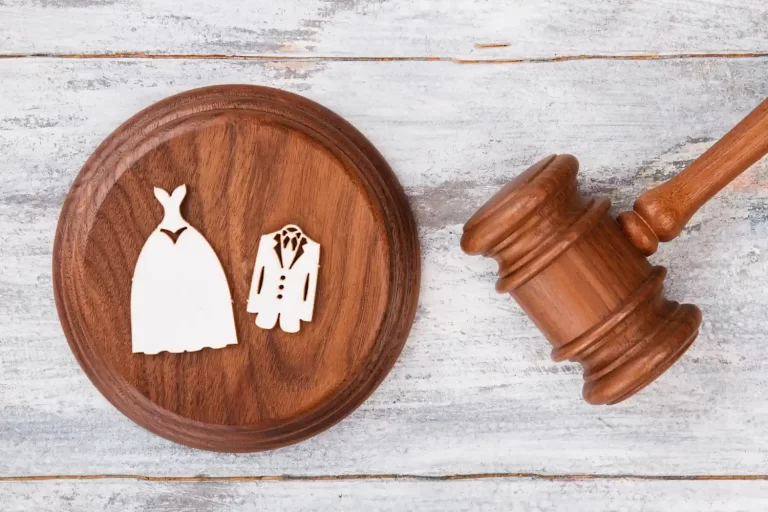Many couples live separately for years before filing for divorce. During that time, they often take steps to divide their finances and move forward with their own lives. However, under Ohio law, none of that officially ends the marriage. Unless the court agrees otherwise, the marriage continues until the divorce is finalized.
If you’ve been separated for a long time, that period can still count as part of the marriage unless you ask the court to recognize an earlier end date. That decision can directly affect how assets are divided, how spousal support is calculated, and whether property is considered separate or marital.
When Is a Marriage Considered Over in Ohio?
Ohio law typically uses the date of the final divorce hearing as the legal end of the marriage. This is outlined in Ohio Revised Code § 3105.171(A)(2). That date is the default, even if the couple has been living apart for many years.
However, the law allows for a different approach if using the final hearing date would be unfair. In those cases, the court can set an earlier date, known as the de facto termination of marriage date, based on the specific facts of the case.

Why the De Facto Termination Date Matters
Time apart doesn’t automatically stop the legal or financial connection between spouses. If the court uses the final hearing date as the end of the marriage, assets acquired during the separation may still be divided as marital property.
This can affect:
- Retirement and investment accounts
- Business income or growth
- Bank balances and property purchases
- Spousal support duration and amount
If you separated in 2012 but filed in 2025, that entire time could be treated as part of the marriage unless the court agrees to use a different date. That could mean splitting income or assets built up well after the relationship ended.
How Courts Decide Whether to Use a De Facto Termination Date
There’s no automatic rule for when the court will use a different end date. Instead, judges look at whether both parties treated the marriage as over and lived accordingly.
Relevant factors include:
- Why the couple separated and when it happened
- Where each person lived after separating
- Whether either person tried to reconcile
- Whether finances were kept separate
- Whether both parties believed the marriage was done
Courts also look at how consistent the separation was. If there were long periods of no contact and no financial ties, that strengthens the case for an earlier end date.
How Long Is Long Enough?
There’s no set number of years that guarantees a different termination date. A five-year separation without contact or financial overlap may support the request. A ten-year separation with occasional joint expenses or attempts to reconnect may not.
What matters most is the behavior of each person during the separation. Clean separation with no signs of continued marital involvement gives the strongest case. Regular contact, shared expenses, or living under the same roof for short periods can make it harder to argue the marriage ended earlier.
Why It’s Important to Talk to a Divorce Attorney
If you’ve been separated for a long time before filing for divorce, don’t assume that time won’t count. The court won’t change the marriage end date unless it’s requested and supported with evidence.
The attorneys at Mizak & Pacetti in Parma, Ohio have handled many cases involving long separations. They understand how courts evaluate these situations and how to present the strongest case for recognizing when a marriage functionally ended.
Frequently Asked Questions
1. Am I still legally married in Ohio if we’ve been separated for over 10 years?
Yes, under Ohio divorce law, you are still legally married until the court issues a final divorce decree, regardless of how long you’ve been separated. Even if you’ve lived apart for 10 or more years, the marriage remains legally active unless you file for divorce and the court finalizes the case. This can impact property division and spousal support. To avoid having post-separation assets considered marital, it’s important to request a de facto termination of marriage date when filing.
2. Does a long separation affect how much spousal support I have to pay or receive?
A long separation can affect spousal support in Ohio, but only if the court recognizes that the marriage effectively ended earlier through a de facto termination date. If no earlier date is granted, support may be calculated based on a longer marriage duration, which could result in a higher amount or longer payment term. The financial independence of both parties during separation also plays a role. Working with an experienced Parma divorce attorney can help ensure your financial situation is properly presented.
3. Can both spouses agree on an earlier end date?
Yes, if both spouses agree and present supporting facts, the court is more likely to approve a de facto termination of marriage date. Ohio courts look at whether both parties treated the marriage as over — including living separately, separating finances, and making no efforts to reconcile. An agreed-upon date can simplify proceedings and reduce conflict. This strategy is especially helpful when both parties want to avoid dividing post-separation assets.
4. Does financial separation matter more than physical separation?
Both financial and physical separation are important under Ohio divorce law when determining the end of a marriage. Courts evaluate whether each spouse lived independently, managed separate accounts, and no longer shared financial responsibilities. Simply living apart isn’t always enough if financial ties remain intact. To strengthen your case for a de facto termination date, clear financial separation is essential.
5. What if we stayed in touch or spent holidays together during the separation?
If you maintained contact, shared holidays, or attempted to reconcile, the court may be less likely to approve an earlier end date. Ohio domestic relations courts look for consistency in behavior that indicates the marriage was truly over. Occasional interaction doesn’t automatically disqualify you from requesting a de facto termination date, but it can complicate your argument. A divorce lawyer familiar with long separation cases in Ohio can help you present a clearer timeline.
Contact Mizak & Pacetti for a free consultation to discuss your options and protect what you’ve built since the separation!


